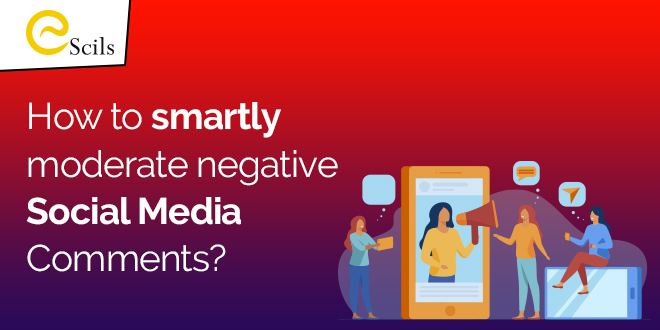What is Social media?
Social media or any web-based network is an advanced tool that permits users to make and offer substance with the general society rapidly. Internet-based life envelops a broad scope of sites and applications. A few, similar to Twitter, spend significant time in sharing connections and short composed messages. Others, like Instagram and TikTok, are working to upgrade the sharing of photographs and recordings. What makes web-based social networking extraordinary is that it is unique, expansive & generally uncensored. While numerous social media platforms force a few restrictions, such as bringing down pictures that show brutality or bareness—there are many fewer confinements on what somebody can share than there with different methods for mass correspondence like papers, radio broadcasts, and TV stations. Anybody with web access can pursue an internet-based account. They can utilize that record to share whatever content they pick, and the content they share arrives at any individual who visits their page or profile.

What’s the problem?
Social media is a fantastic platform to interact with, learn, create, inspire, etc. But as all things have their fair share of pros and cons, so does social media. It is known that social media is the reason for a lot of comfort and ease in society, majorly because of its massive participation in connectivity. But unfortunately, not all types of connectivity provided by social media have proven to be beneficial. Some thoughts and remarks of people in the process of connection have let down one another.
At some stage, every social media administrator should manage negative remarks on their pages, profiles or posts. Some of these comments will be from blatant trolls – people trying to hijack the conversation, and making loosely connected remarks based on the original post. At the same time, others will be bright and passionate criticisms of your brand and product. In many cases it can be ignored (or deleted in the case of offensive remarks). Still, the comment needs to be addressed, to manage brand perception and maintain, and ideally improve, consumer standing.
While others will be bright and enthusiastic reactions of your image and additionally item, as a rule, the previous should be disregarded (or erased on account of hostile comments). Yet, the last should be tended to oversee brand recognition and keep up, and preferably improve shopper standing.

What’s the best way to manage negative responses?
When you see a negative comment, your first reaction may be to respond in-kind, and dish out some harsh responses to put the commenter in his or her place. This approach generally doesn’t work out so well.
To formulate a better approach, the team from Digital Giants has put together this simple overview of how to respond to negative mentions. The steps here are necessary and easy to follow and cover the key points that you need to keep in mind. This can be a crucial element, and it’s essential to have a coordinated approach to such within your business.
When you see a negative remark, your first response might be to react in-kind and dole out your very own portion of unforgiving reactions to put the analyst in their place. This technique, by and large, doesn’t turn out to be so well. To detail a superior methodology, the group from Digital Giants has assembled this basic diagram of how to react to negative comments. The steps here are basic and easy to follow and cover the key points that you need to keep in mind. This can be a crucial element, and it’s essential to have a coordinated approach to such within your business.

5 Smart Ways to Handle Negative Online Comments
Regardless of whether you’re an author, YouTuber, influencer, or an entrepreneur, negative online remarks are probably the most significant wellspring of stress. Not exclusively negative remarks put down your temperament, yet however, they can likewise harm your reputation or what you talk about. Be that as it may, you are not feeble against these insensitive individuals on the web.
Here are a few methodologies for dealing with negative online remarks:

Educate yourself with the difference between constructive criticism and hate
In the world where we live, an ideal person is continuously thriving to be a better version of himself, whether it’s personally, academically, or professionally. Improvement and self-construction is just part of the deal. And similarly, the world is filled with individuals of all types and thinking, where their thoughts are most likely to oppose yours, one must understand that. There are different kinds of negative comments; some are mean and disrespectful, while others are opinions that vary from yours or just some constructive criticism from someone who wants you to progress. However, some people are generally respectful while explaining their point as to why they disagree with your views, or why they were dissatisfied with your service.
As a company, brand, or individual, you’re bound to learn that constructive criticism is a part of the job. At the same time, there is a noticeable difference between people who spew anger and hate without offering anything constructive. Unfortunately, there is no way to zip their mouths or to tie their hands; these types of comments need to be handled differently. One should learn to respond and learn from it, while on the other hand, the hate comments are not something you should tolerate, do your best to eliminate or neutralize them.

After all, you’re the boss! Moderate the comments
Whatever platform or setup you use, remember you’re in charge. You do not need to take hate from petty people, remember to set up your site with precautions and limitations that stop the comments from being featured in your separate post without your approval.
This smart framework will normally dishearten individuals from composing insensitive, unconstructive remarks against you, since they won’t get the instant gratification of having them being published right away. In any case, if somebody presents a remark that contains contemptuous discourse and offensive language, dismiss it. Comments that are negative yet, in addition, productive as well are the ones you should endorse, as comments like those are constructive criticism. You can react to these remarks appropriately and take a lesson because not all negative comments are of hate.

You represent yourself and your brand, always be respectful!
For someone with a lot of general public attention and publicity, it often gets annoying and painful to always be pleasant or silent with hurtful comments or backlashes. At one point or another, one loses their patience on either themselves or the general public. As an eminent personality, it is essential to remember that no matter how low the other person gets, whether in defaming, offensive comments, or other reasons. The person attacked must not retaliate the same way, as being a famous personality or brand affects the profile and defames you.
For example,
If you’re a blogger or writer responding to somebody who can’t help to contradict your perspective, you can either just tell the individual you respect their difference in feeling/opinion or tell the person you respect their difference of opinion and offer a well-reasoned rebuttal. Blowing up, lashing out, and taking part in verbal abuse will aggravate your look. Yet, giving a considerate answer that is situated in reality will decidedly reflect your character. If you are a business-owner responding to a negative message on your website, always start with an apology, in case you messed up their order.

Learn to moderate social media comments
Many negative comments come in the form of social media posts or replies, usually on Facebook or Twitter. It would help if you moderated or removed these remarks as well as you can, utilizing the standards of right online management tactics. You can without much of a stretch erase hateful remarks from your Facebook posts. You likewise can block Twitter accounts that react hate; however, be cautious about blocking people. Blocking somebody may urge them to compose increasingly negative things about you, which anybody can see, so not recognizing them may be a progressively smarter move. Another fix to the problem could be hiring a social media manager to handle those hateful comments and all your other social media needs.

Encourage positive comments
No one gains or loses anything by being friendly and considerate; kindness never had, nor will have a cost. Although someone’s kindness isn’t an immense deal, to appreciate someone’s kindness and good words reflects your image as a brand or person.
If you are an entrepreneur attempting to manage negative or disrespect comments on audit destinations, the best methodology available to you is urging individuals to compose positive surveys to balance the negative ones. A few platforms comprise policies that won’t bring down reviews unless they disregard the locales TOS (Terms of Service), so you need to battle fire with fire but with respect, so speak with dignity.
Often, individuals are progressively disposed to compose surveys if they had a terrible experience with your product, which can slant your rating descending. To turn around that pattern, routinely solicit your clients to compose surveys or weak points for your business. This will rouse the people who had constructive encounters to share them on the web and neutralize the contrary surveys.
One must always remember that a few bad reviews mean nothing in front of many good ones; you must believe in yourself and your visions more than what others say. The most significant thing to remember when taking care of online remarks is to remain quiet and not let negative words get under your skin. Getting cautious and passionate can prompt helpless choices, so take a full breath, and show that you’re a great treat who can learn, develop, and bounce back.
And lastly,
Spread love, and not hate.


